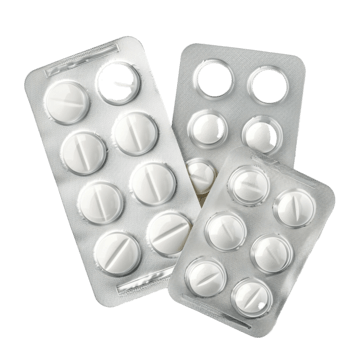Escitalopram

Escitalopram 10mg, 20mg
Escitalopram is a selective serotonin reuptake inhibitor (SSRI) commonly prescribed to treat depression and anxiety disorders. By increasing the levels of serotonin, a neurotransmitter that helps regulate mood, Escitalopram can alleviate symptoms such as persistent sadness, excessive worry, and feelings of hopelessness. It is often used to improve overall emotional well-being and is well-tolerated by many patients, making it a popular choice in the management of these conditions.
Order NowDescription
Escitalopram is a selective serotonin reuptake inhibitor (SSRI) medication primarily used to treat depression and anxiety disorders. It works by increasing the levels of serotonin, a neurotransmitter that contributes to feelings of well-being and happiness, in the brain.
Uses / Indications
- Major depressive disorder (MDD)
- Generalized anxiety disorder (GAD)
- Social anxiety disorder
- Obsessive-compulsive disorder (OCD)
- Panic disorder
Dosage and Administration
Adults:
10 mg once daily, may be increased to 20 mg based on the doctor’s advice and individual response.
Older adults (over 65 years):
Usually starting at 5 mg once daily, with potential adjustments by the healthcare provider.
Note: Dosage may vary based on individual needs and medical conditions.
How It Works (Mechanism of Action)
Escitalopram selectively inhibits the reuptake of serotonin at the neuronal synapse, thereby increasing serotonin availability in the brain. This action helps improve mood and reduce anxiety.
Side Effects
Common side effects:
- Nausea
- Sleep disturbances (insomnia or sleepiness)
- Dry mouth
- Increased sweating
- Dizziness
Rare/serious side effects:
- Severe allergic reactions (swelling, rash, difficulty breathing)
- Suicidal thoughts or behavior
- Serotonin syndrome (symptoms include confusion, hallucination, seizure, extreme changes in blood pressure)
If serious side effects occur, seek medical attention immediately.
Precautions / Warnings
- Inform your doctor if you have a history of liver or kidney issues, seizures, or bipolar disorder.
- Caution is advised if combining with other medications affecting serotonin levels.
- May cause withdrawal symptoms if discontinued abruptly; follow your doctor’s recommendations for tapering off.
Drug Interactions
Escitalopram may interact with:
- Other SSRIs or SNRIs
- Monoamine oxidase inhibitors (MAOIs)
- Certain pain medications (like tramadol)
- Blood thinners (like warfarin)
Always inform your healthcare provider about any other medications, supplements, or herbal products you’re taking.
Storage Instructions
- Store at room temperature (20°C–25°C / 68°F–77°F)
- Keep away from moisture and direct sunlight
- Keep out of reach of children
Missed Dose / Overdose
Missed a dose?
Take it as soon as you remember. If it’s close to the time for your next dose, skip the missed one; do not double up.
Overdose symptoms:
- Increased drowsiness
- Rapid heartbeat
- Severe dizziness or fainting
- Confusion
Contact a poison control center or seek emergency medical help if overdose is suspected.
Contraindications
- Allergic reactions to Escitalopram or citalopram
- Concurrent use of MAOIs or thioridazine
Brand Names / Alternatives
- Lexapro
- Escitalopram oxalate (generic)
- Some international brand names may vary.

